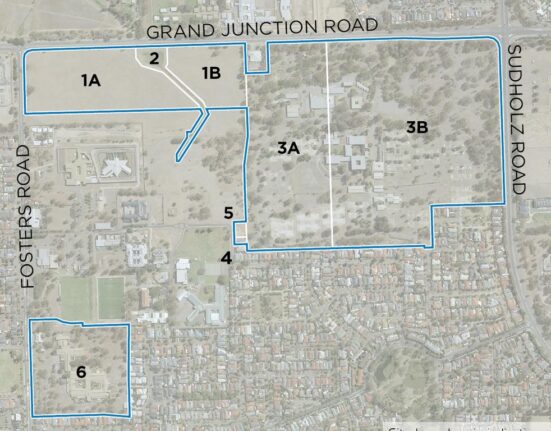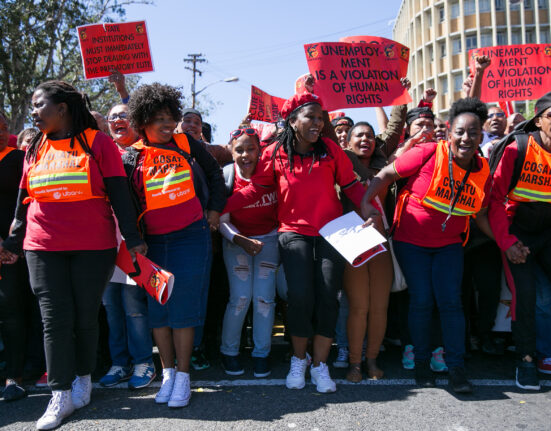The House of Representatives Committee on Solid Minerals, led by Rep. Jonathan Gbefwi, recently made a critical decision regarding the operations of Arab Contractors’ quarry. The committee took action to suspend the company’s activities due to safety violations that posed a significant risk to the surrounding community.
During a meeting with the Ministry of Solid Minerals Development in Abuja, Rep. Gbefwi expressed grave concerns about the proximity of Arab Contractors’ blasting operations to a residential area. He emphasized that the blasting occurring just 431 meters away from the host community was not only against operational regulations but also potentially harmful to the well-being of residents.
In his address, Rep. Gbefwi highlighted the severity of the situation, stating,
“Arab Contractors blast with a distance of 431 meters, which is a contravention of the rule of engagement and a threat to people’s safety.”
This statement underscores the importance of adhering to established guidelines to protect lives and properties within communities where such operations take place.
The decision to suspend Arab Contractors’ quarry operations serves as a clear message that regulatory compliance is non-negotiable when it comes to ensuring public safety. By enforcing this suspension, authorities are taking proactive steps to prevent any potential harm that could arise from irresponsible practices in mining and quarrying activities.
Moreover, Rep. Gbefwi reiterated that all companies must operate within the legal framework set by Nigerian laws to safeguard communities effectively. He warned against flouting these regulations by stating firmly,
“Nigeria is not a banana republic,”
emphasizing that strict adherence is essential for maintaining order and protecting citizens from unnecessary risks.
The suspension imposed on Arab Contractors sends a strong signal about accountability in resource extraction industries. It underscores the government’s commitment to upholding standards that prioritize safety and environmental protection while also ensuring that local communities benefit equitably from such projects.
In response to these developments, Ms. Vivian Okono, Director of Mining, Extraction and Compliance at the Ministry of Solid Minerals Development, acknowledged existing challenges with companies disregarding regulatory requirements. She noted efforts made by the ministry towards holding operators accountable for their actions and urged continued compliance with safety protocols for the greater good.
Ms. Okono’s insights shed light on broader issues within Nigeria’s extractive sector concerning adherence to environmental standards and community welfare. By addressing non-compliance directly with companies like Arab Contractors, regulatory bodies aim to create an environment where responsible mining practices are not just encouraged but enforced for sustainable development.
It is crucial for companies involved in quarrying and blasting activities in Nigeria – or any country – to operate ethically and responsibly while respecting local laws and regulations designed for public welfare.
The National Environmental Standards and Regulations Enforcement Agency (NESREA) Act provides comprehensive guidelines governing quarrying and blasting operations across Nigeria. These regulations aim at safeguarding communities living near such sites from potential hazards associated with mining-related activities.
Sections 22(1) through 22(3) specifically outline restrictions on blasting distances from residential areas as well as measures aimed at mitigating any adverse impacts on nearby populations or environments due to such operations.
Arab Contractors’ breach by conducting blasts at just 431 meters instead of complying with safer limits clearly highlights their failure in upholding required safety standards as mandated by law.
This incident serves as a reminder of why stringent oversight is crucial in industries where public safety hinges upon responsible corporate conduct.
By suspending Arab Contractors’ quarry operations until they relocate further away from residential zones,
the House committee aims not only
to enforce compliance but also
to demonstrate its unwavering commitment
to protecting communities
from potential harm stemming
from negligent practices.
Overall,
this case underscores
the delicate balance between industrial progress
and societal well-being,
highlighting
the imperative
for all stakeholders
to prioritize
safety
and regulatory adherence
in resource extraction endeavors.









Leave feedback about this